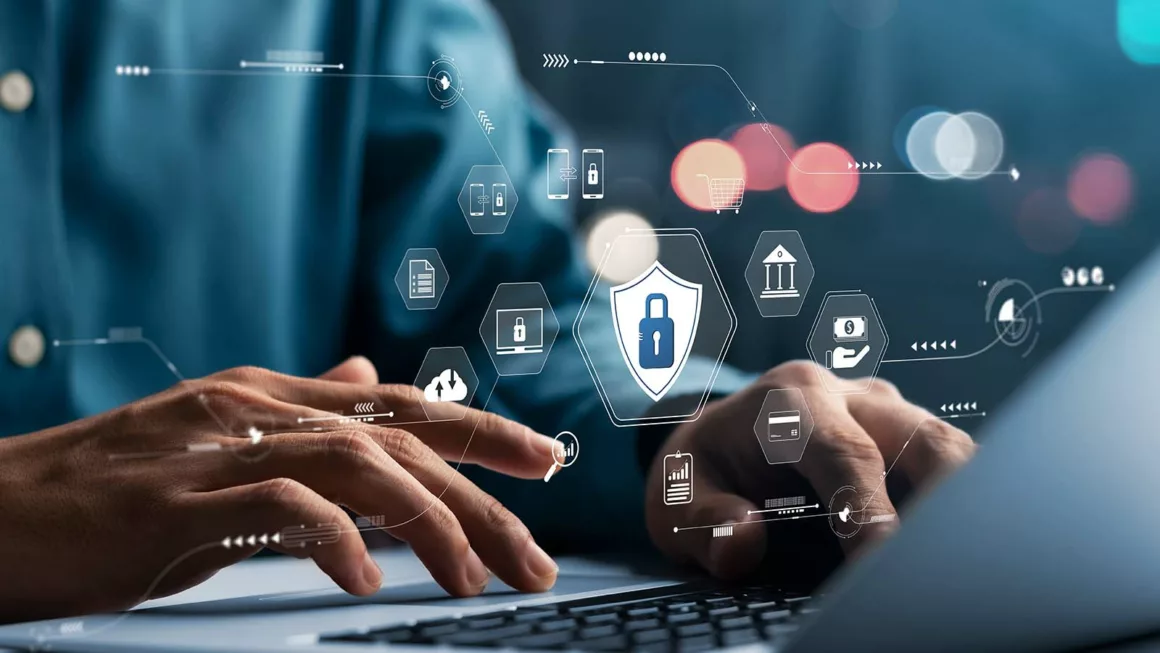Legal firms handle significant quantities of highly sensitive information which makes them highly attractive to cybercriminals. For that reason, legal firms need to take their cyber security extremely seriously. This may include intellectual property information, merger and acquisition details, personally identifiable information, and other confidential information. To properly protect your law firm’s data you should develop a comprehensive security policy to ensure that your security isn’t compromised.
This will usually combine a range of administrative, physical and technological safeguards that minimise the risk of your practice becoming a victim of cybercrime.
Here are the top 10 cyber security measures every law firm needs.
- Company policies and procedures
A significant number of cybersecurity issues have their cause in human error. Good cybersecurity begins with well-understood and implemented policies and procedures. This will include guidelines regarding data protection, remote work, data governance, access control and incident response.
- Staff training
It’s no good having a comprehensive set of security policies and procedures if no one knows how to implement them. Your firm should ensure staff across the firm have received proper training in how to protect data, control access and respond quickly to any security incidents.
- Perform regular security assessments
Monitoring cybersecurity shouldn’t be a one-off event. An ongoing assessment process should be implemented in order to spot risks early on, evaluate their seriousness and then respond. For instance, could potential security issues around remote working be minimised by using a hosted desktop service?
- Check all your devices
The principal means by which hackers can access your company’s data is through your devices. Any vulnerabilities across your communication channels should be identified and rectified. Consider using cloud technologies to circumvent some of the risks, as well as Virtual Private Networks (VPNs) to protect your internet traffic.
- Third-Party Due Diligence
Law firms make substantial use of third-party services, and it’s important that these are included in a security assessment process. Any guarantees or statements that you receive from third parties should be checked to ensure that they have commitments
- Check your Lawtech
There has been an explosion of lawtech over recent years. Digital technology helps legal firms manage their practice, streamline processes and deliver a better service to their clients. You should be clear about the kind of access apps and other technologies have, to your client information and the security they employ. The Law Society has provided guidelines for firms on the use of lawtech to help legal firms manage their use of new technologies in their practice.
- Plan for the worst
Your company should have a well-worked plan for dealing with a cybersecurity incident. It should detail how to identify incidents, the actions that will be taken, who needs to be notified and how communications will be conducted.
- Talk to your clients
Communications with clients may also create vulnerabilities. In order to try and minimise this risk, clear communications should let your clients know who from the firm will contact them and the methods they will use. Clients should also be aware of how they can report any suspicious contact.
- Employ a dedicated security professional
Depending on the size of your firm it may be appropriate to employ a dedicated cybersecurity professional within your organisation. The value of the information that legal firms hold and the damage that can be done to a company’s reputation should a security breach happen makes hiring security experts a sensible option. If you can’t realistically afford to employ a full-time security professional, consider using freelance cyber security services to periodically visit your company and assess your overall security approach.
- Use a hosted desktop service
With remote working becoming the norm across the legal sector, the possibilities for security breaches have grown considerably. Cloud-based hosted desktop services facilitate hybrid and remote working while ensuring the highest possible degree of security. Hosted desktop services are cost-effective and enable greater mobility without compromising on cybersecurity. Data will usually be stored in data centres with much more robust security than in-house systems can provide.
Hosted desktop services from OneTechUK
OneTechUK provides secure hosted desktop service across a range of sectors including legal firms. We help our clients reduce overall IT costs by eliminating the need for expensive servers, hardware, licensing, back-ups, anti-virus and support.
Your firm’s data is stored in a UK based, world-class data centre with the very highest levels of security. We continually monitor and respond to threats, helping to significantly reduce the chances of a data breach for your firm.
To find out more about our hosted desktop services call 0333 8001313 or email hello@onetechuk.com
 Harjeet (Harry) Singh
Harjeet (Harry) Singh